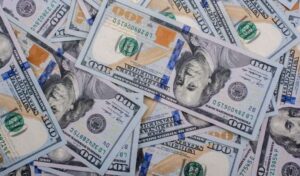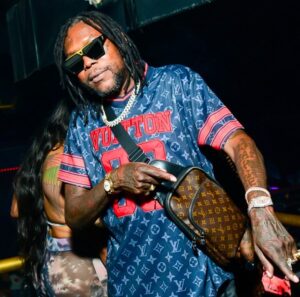
Wipeout!
Jamaicans returned the Jamaica Labour Party (JLP) to office yesterday with landslide in a general election defined by the novel coronavirus pandemic and the immense popularity of its leader, Andrew Holness who, at age 39, became Jamaica’s youngest-ever prime minister in October 2011.
The 49-14-seat victory in the preliminary count, which People’s National Party (PNP) vice-president and campaign co-director Phillip Paulwell last night described as “shocking”, also reversed the one-term trend that started to emerge at the December 2011 General Election when the JLP — after ending more than 18 years in Opposition at the September 2007 polls — was kicked out office by the PNP, which just over four years later suffered a similar fate in February 2016.
Last night Holness, who in July this year marked his 48th birthday, acknowledged the massive margin of victory and pledged that his Administration would be responsible in the management of the power given to it by Jamaican electors.
Addressing journalists during a press conference at the party’s Belmont Road headquarters in St Andrew, Holness said there should be no victimisation, retribution or malice in how the JLP moved forward as it relates to Jamaicans who supported the PNP.
Stating that the Government was very cautious in its approach to receiving the overwhelming majority, Holness said: “It must never be that the Government takes on any characteristic of arrogance. It must never be that this Government takes the people for granted.”
Holness also said he had no intention of dismissing as a spectre the allegations of corruption that shadowed his Administration in its previous stint.
“I raise this in my acceptance speech — this is not a victory speech. In our last Government the narrative of corruption dogged us, and I want to make it very clear because there are many persons who will be assuming State authority… this Government does not stand for corruption,” he said.
He also said the new Administration was mindful that a number of Jamaicans shied away from the polls, some because of fear of COVID-19, but some also because of apathy and concern.
The JLP’s victory was also a vindication of the August 21-23 political poll conducted by Bill Johnson for the Jamaica Observer which showed that the party held a 14-point lead going in the election.
Last night, Johnson reiterated a point he made to veteran journalist Cliff Hughes on Nationwide radio this week in an analysis of the poll published in the Observer on Tuesday.
“You will recall that I had said that, given the 14 points, the JLP would win 50 seats. Basically our poll was right on, all things considered. So I don’t think readers of the Observer were surprised by the results,” Johnson said.
The victory also marked the second time in 53 years that the JLP was securing a second contested term, having won 33 of the 53 seats in the 1967 election after taking 26 seats to the PNP’s 19 in the 1962 poll.
Additionally, it revived memories of 1980 when the JLP captured 51 of the 60 seats in the legislature.
Signs that the JLP was headed to a landslide in the 63-seat legislature started to emerge about 8:00 pm when, with 5,981 of the 6,978 boxes counted the party was leading in 50 seats, compared to 13 by the PNP.
By 9:45 pm, with 6,953 of the 6,978 boxes counted, 44 seats were declared for JLP, compared to 14 for the PNP.
The JLP’s wipeout was also significant for the fact that it claimed some of the PNP’s big scalps, among them Peter Bunting in Manchester Central, Wykeham McNeill in Westmoreland Western, Luther Buchanan in Westmoreland Eastern, Horace Dalley in Clarendon Northern, and Dr Fenton Ferguson in St Thomas Eastern.
Bunting’s loss to newcomer Rhoda Moy Crawford will be particularly damaging to his ambition to lead the PNP, especially because it was his challenge to Dr Peter Phillips’s leadership last year that reopened old wounds in the party and resulted in the organisation going into the election divided.
Yesterday morning Dr Phillips, after he voted in the St Andrew North Eastern constituency, reminded journalists that he had indicated that he would step down as PNP president, and ultimately member of parliament, if his party lost the election.
— Additional reporting by Alicia Dunkley-Willis

























